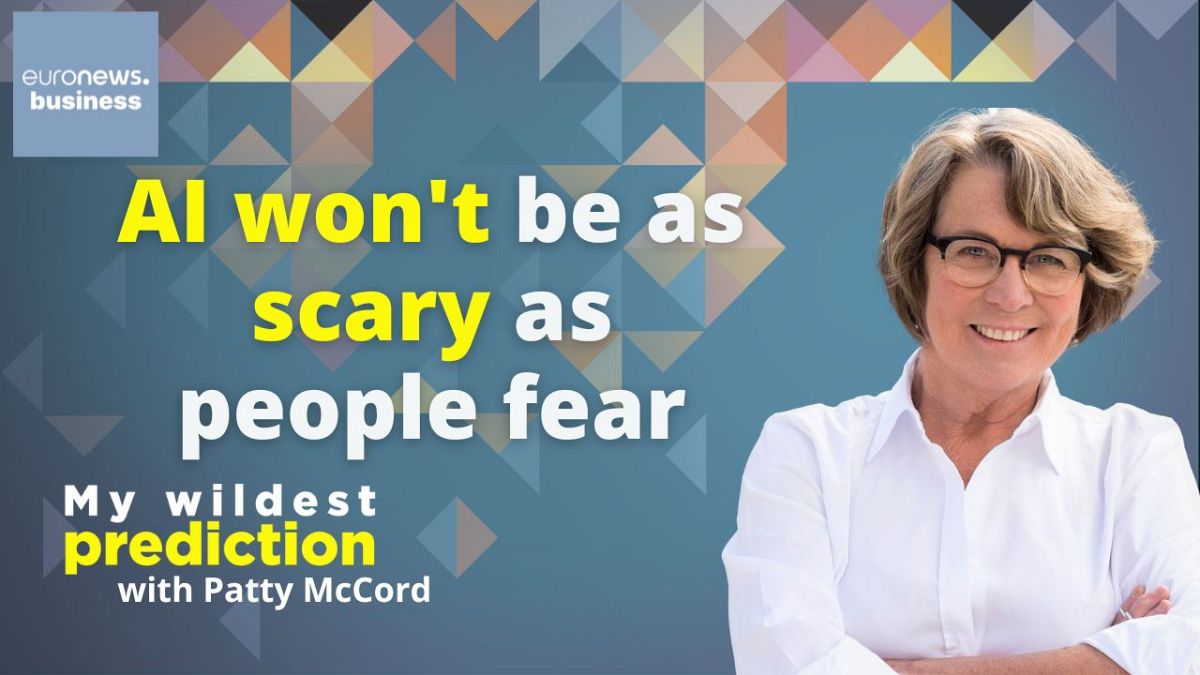The debate over whether artificial intelligence (AI) is a threat to humanity or a tool for its advancement has divided society since OpenAI released an early demo of ChatGPT in November 2022.
A 2023 global study on the shifting public perceptions of AI, conducted by KPMG and The University of Queensland, found that 85% of respondents think AI has some benefits, but only half of all respondents believe that the benefits outweigh the risks.
In this debate, Patty McCord does not sit on the fence. The former chief talent officer at Netflix, now a podcaster and human resources consultant, is very optimistic about the impact AI can have on society. She joined the podcast My Wildest Prediction to explain her position.
My Wildest Prediction is a podcast series from Euronews Businesswhere we dare to imagine the future with business and tech visionaries. In this episode, Tom Goodwin talks to Patty McCord, former chief talent officer at Netflix and human resources consultant.
The fear of AI
“My wildest prediction is that AI won’t be the big scary thing that we think,” McCord told Euronews Business.
The HR expert emphasised that scepticism is a typical reaction to the appearance of new technologies, probably connected to the fact that few people understand how to use them.
“There’s a fear that the next generation will do something evil with it,” she said. “And we spend the first five, ten years of the new technology protecting our children from it”.
According to McCord, much of the fear stems from cultural narratives shaped by dystopian science fiction. In these stories, new technologies are often depicted as a threat to humanity rather than tools for progress.
Despite her years in the entertainment industry, Patty McCord is not afraid of the impact AI could have on art. She said she understands why artists are concerned, but believes that AI will be integrated into the creative process, instead of entirely replacing human work.
AI and work
According to McCord, the impact AI has on our society depends on how people use it and, more specifically, how managers integrate it into their industries and the daily workflows of their employees.
Reflecting on the earlier wave of robotics, McCord said, “We did a terrible job of vocationally training the people who used to do the work to be the people who can maintain and sustain the robotics”.
According to her, this mistake often comes from bias in the workplace, and it should not be repeated with AI.
“There was an internal bias that said: ‘these people without skills and training won’t be able to do it’ but the truth is that they can, just nobody ever asked them to,” McCord explained.
According to McCord, employees should be trusted and taught how to use new technologies. This, she believes, can have great benefits for staff outcomes.
“I think there’s a way that technology helps us release creativity in everybody, no matter their job,” McCord said.
Additional sources • Johan Breton video and sound editor

